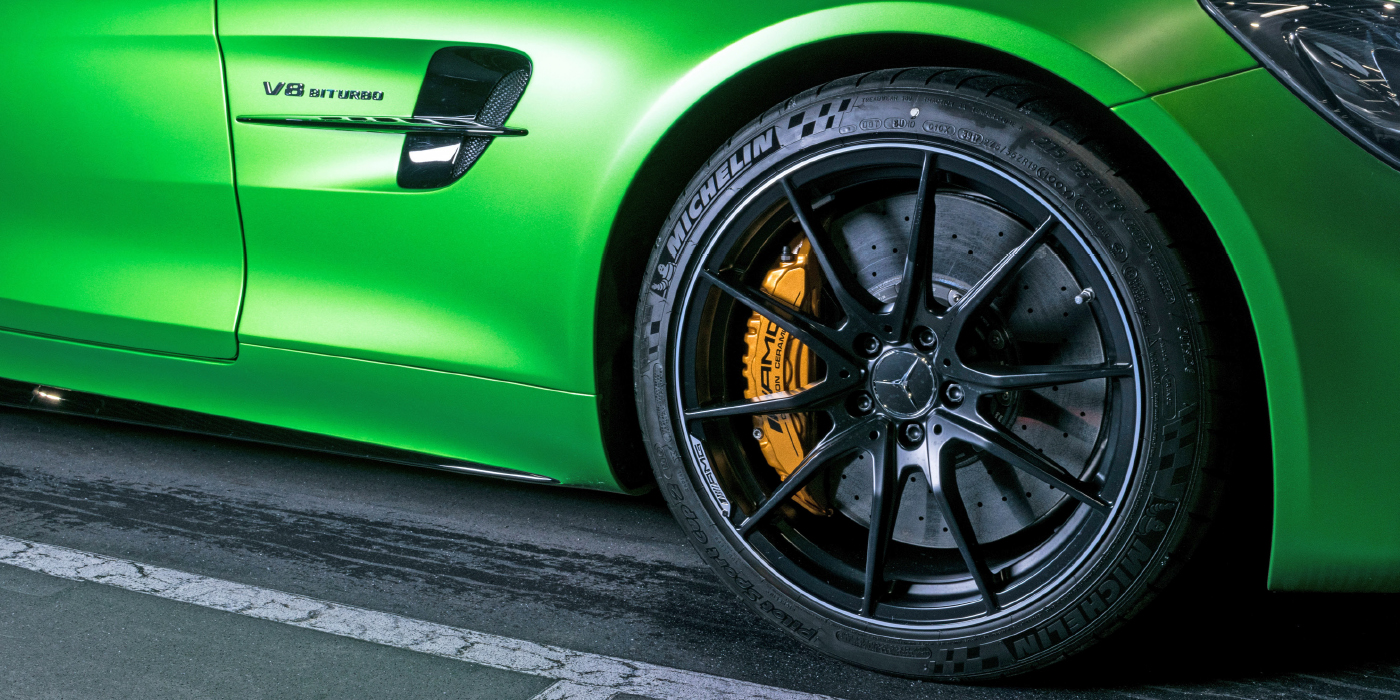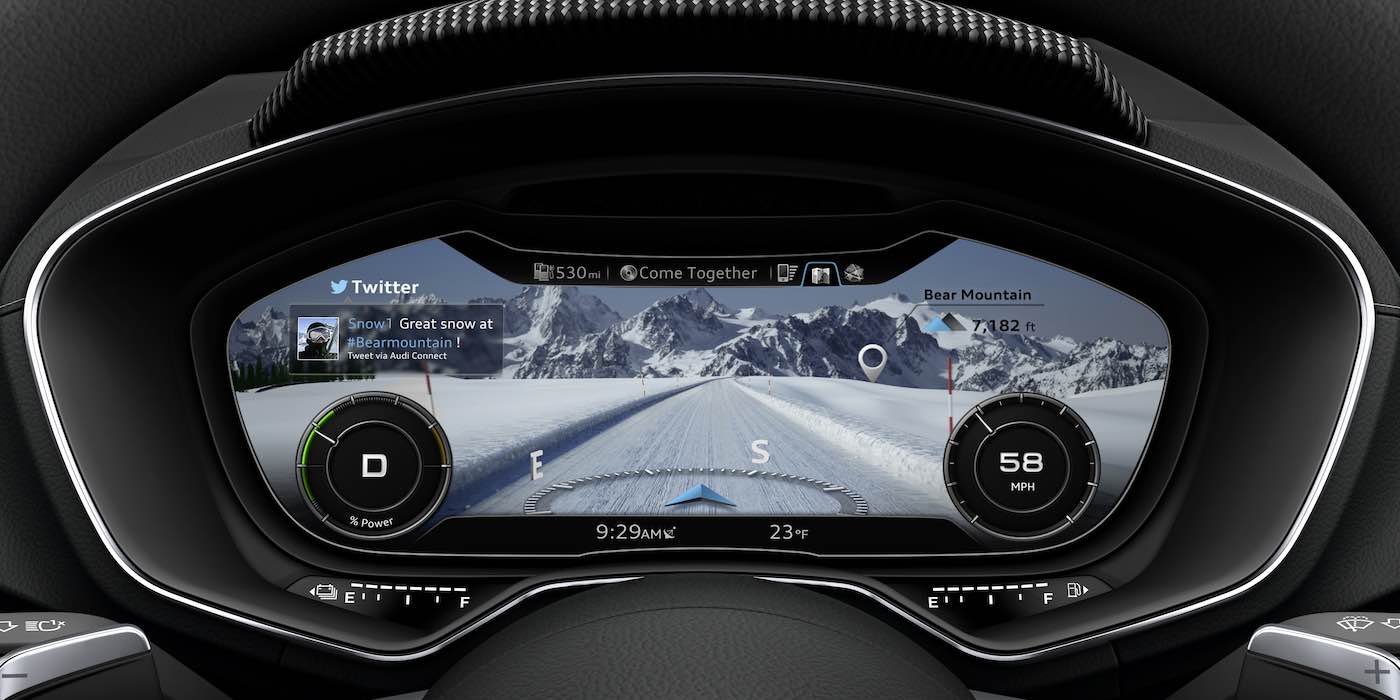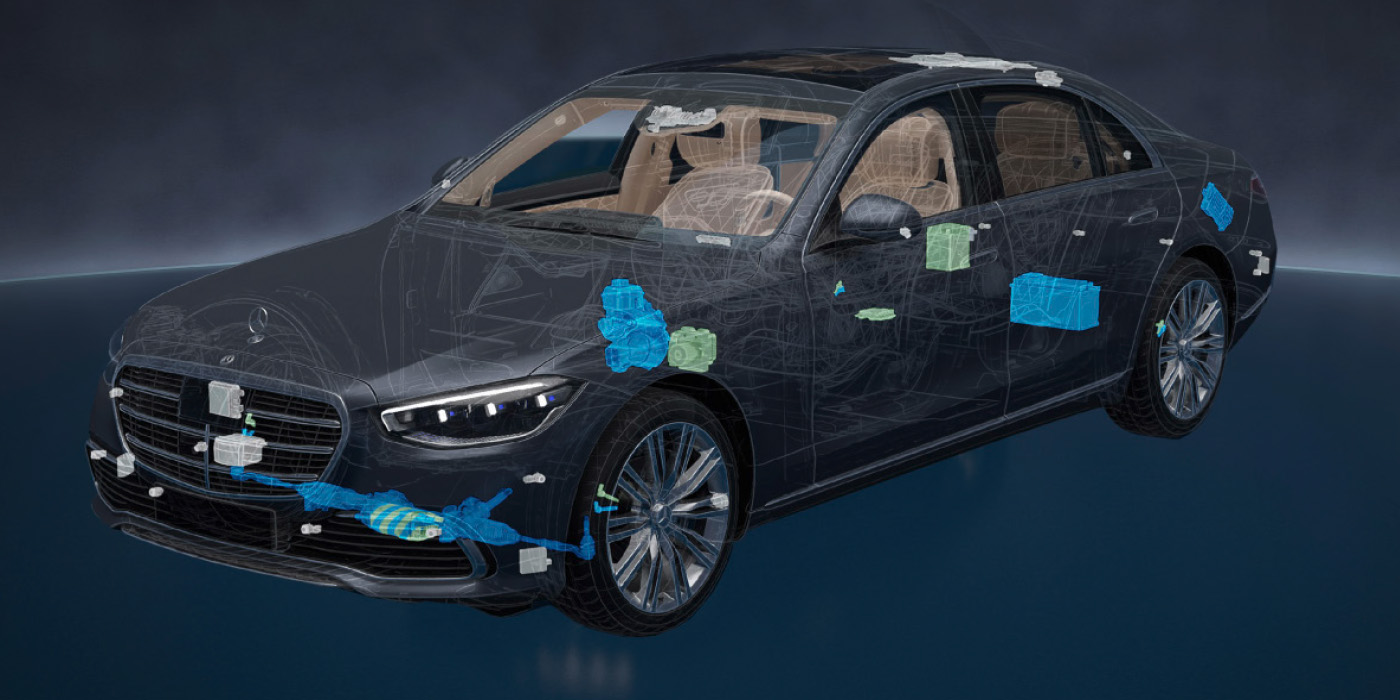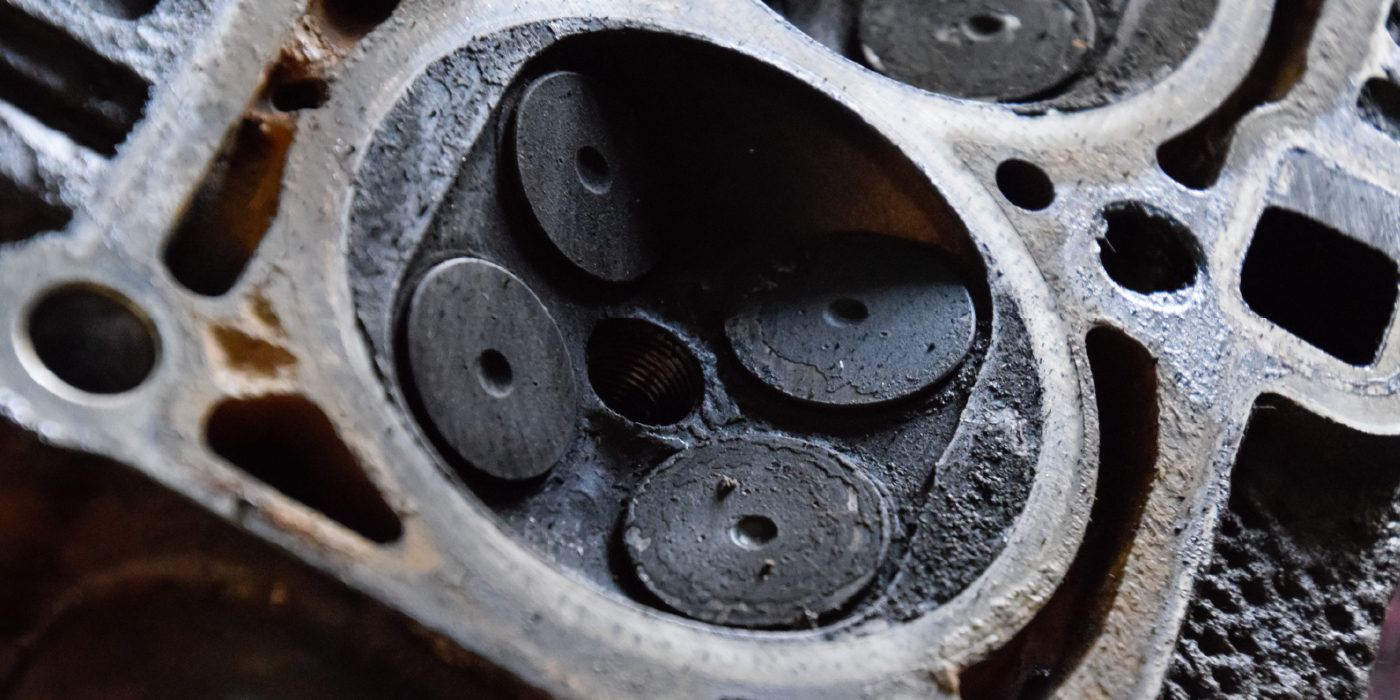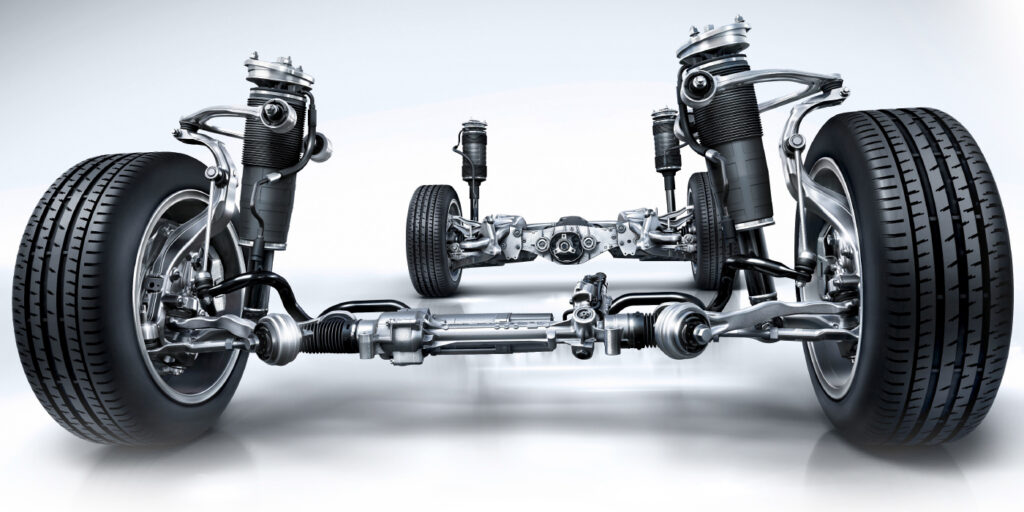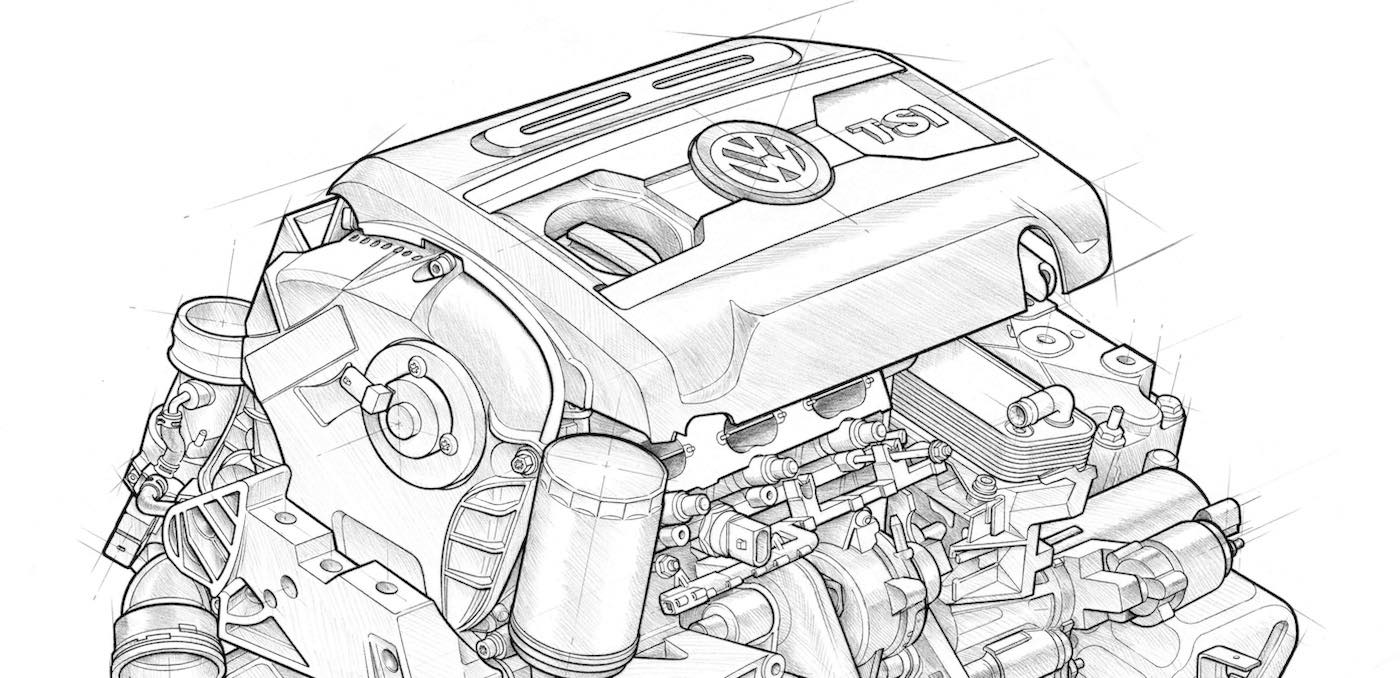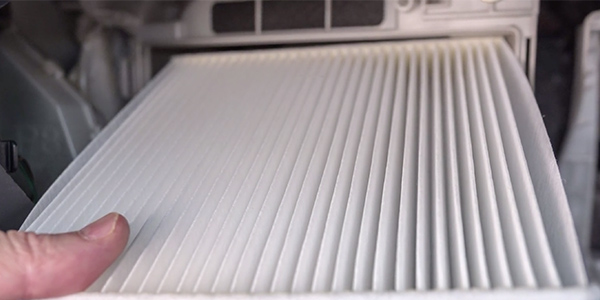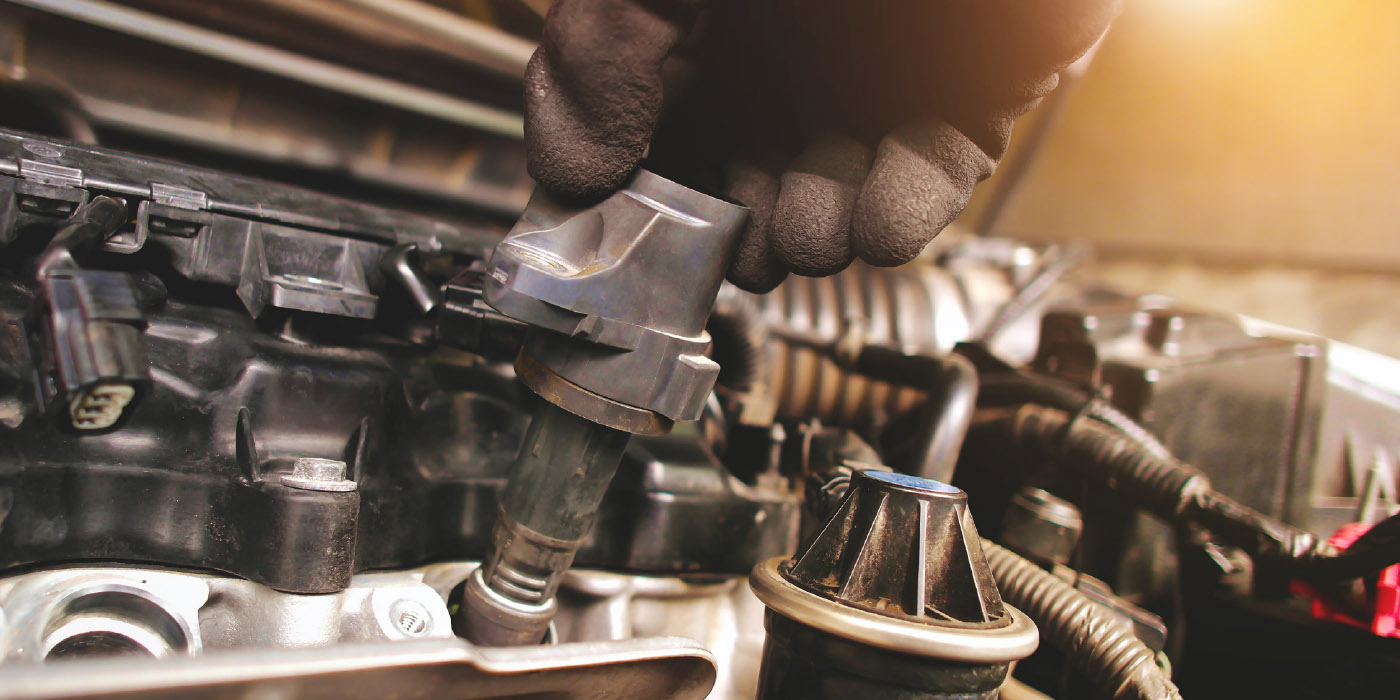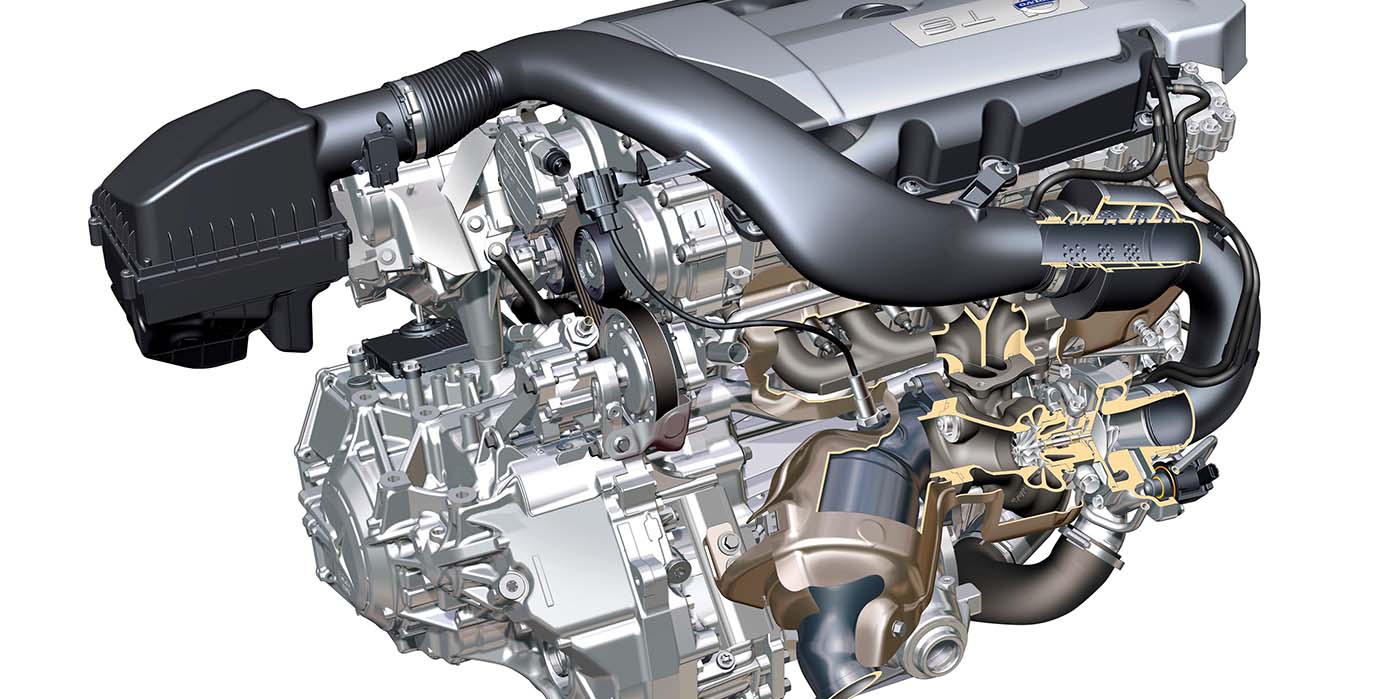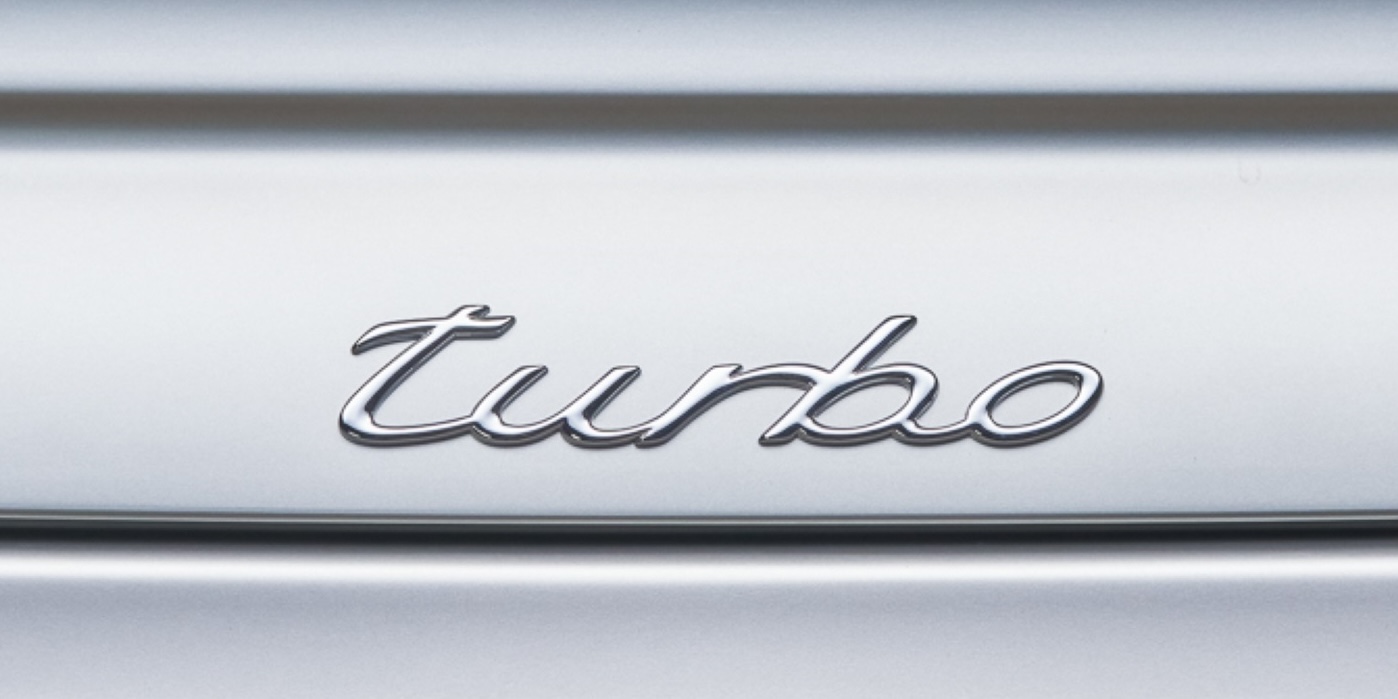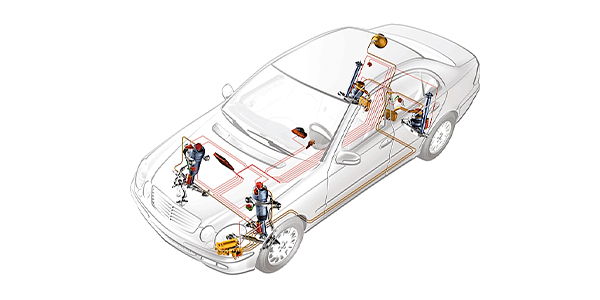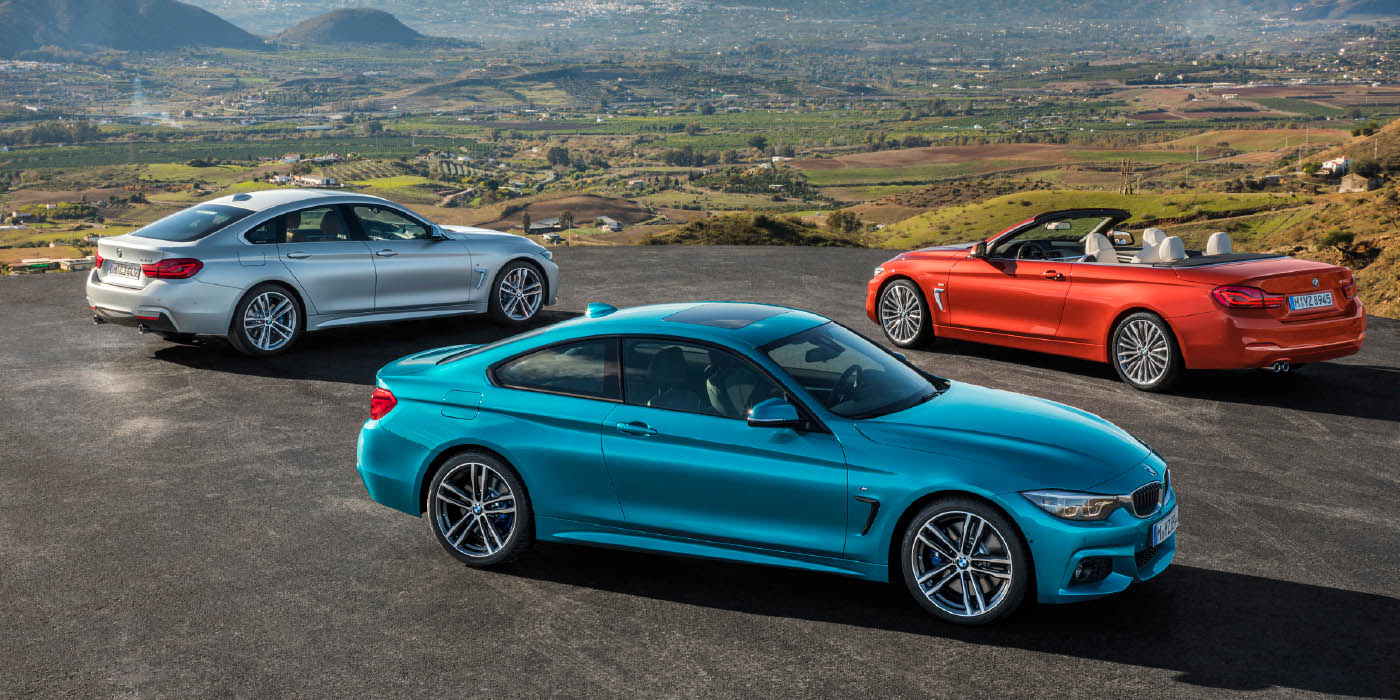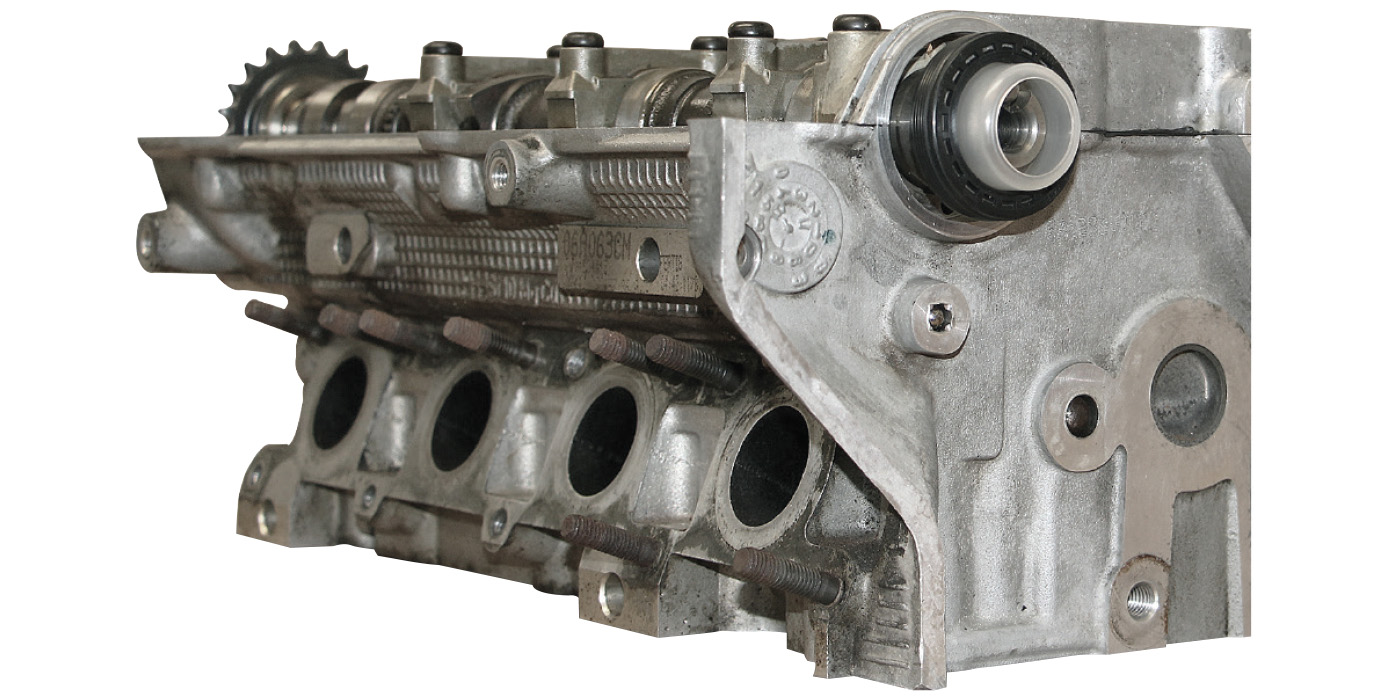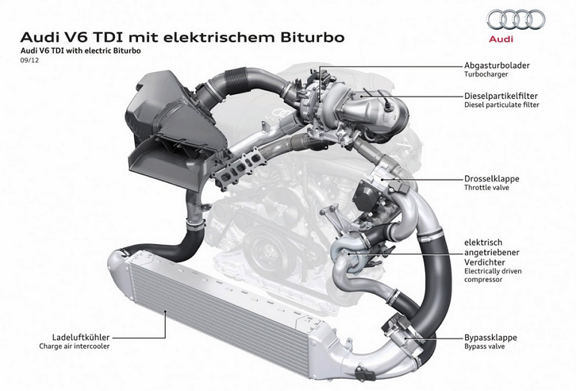
Now there is a solution to dreaded lag which accompanies turbochargers at low rpm, and it’s one you’d be surprised hasn’t been tried earlier.
The primary hurdle when it comes to turbocharging over supercharging has been the lag encountered at lower engine outputs. One solution to this has been to use a twin turbo setup, with a smaller compressor to be run at lower rpm and a larger one to augment when output is higher. Even this isn’t a perfect model, however, and while more and more manufacturers across the industry are adopting turbos, a number have abstained, citing performance concerns, notably Jaguar.
Audi seeks to rectify this with an electric turbocharger setup. This design will use an electric motor to drive the turbo at lower rpm, until engine output is sufficient to drive the turbo by exhaust gases. Now, instead of waiting for the exhaust gases to reach a suitable level, power is available almost instantaneously. In Audi’s design, the electrified turbo, which would be the smaller of the two in a twin turbo layout, would draw power from energy gained by regenerative braking (KERS) systems, so that no engine power is used to spin it. We don’t have any information about what kind of a battery pack will be employed to store this energy, however. The concept could also be used in conjunction with hybrid car technology, as energy could be diverted from the primary battery packs to spin the electric compressor.
The incredible potential of this technology is obvious. Reducing the lag inherent to turbocharging would aid in acceleration, as well as cornering, when rpm levels drop significantly due to braking. Audi reports significant improvements in both of these categories. Audi’s design may even overpower superchargers at lower outputs, as since electricity is already on hand, delivery could be near instantaneous. The technology still has yet to be explored in depth, and it hasn’t been applied to any production vehicle yet; it has been used in certain racing series for quite some time, however. Audi says that the technology will appear on its RS-5 concept (pictured above,) which employs Audi’s 3.0 liter TDI engine.
Courtesy of Speedville.com.

